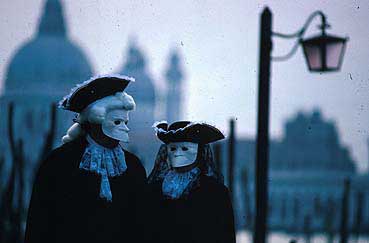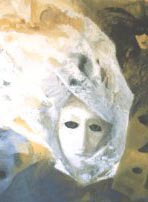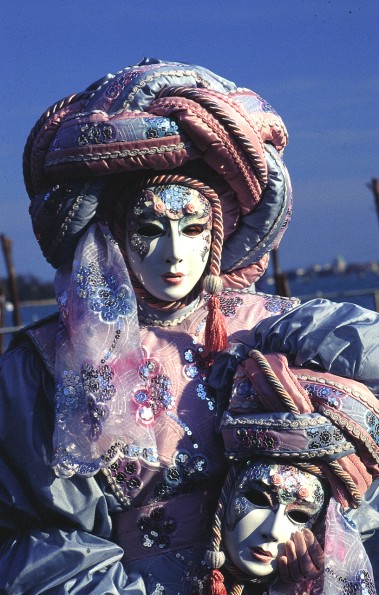


|
view operas online! |
||
|
Learn how and why Ancient Rome, Greece and Egypt were invented and crafted during Renaissance. Discover the Old Testament as a veiled rendition of events of Middle Ages written centuries after the New Testament. Perceive the Crusaders as contemporaries of The Crucifixion punishing the tormentors of the Messiah. What if Jesus Christ was born in 1053 and crucified in 1086 AD?
|
|
|
Carnival in Venice
Carnival, or Carnevale, is Venice's answer to Mardi Gras and Fasching. For a 10-day period before Lent each winter, tourists flood the city for an orgy of pageants, commedia dell'arte,concerts, balls, and masked self-display until Shrove Tuesday signals an end to the party. Carnevale isn't just a Venetian tradition; similar festivities occur throughout much of the Roman Catholic world, including other cities in Italy. The term "Carnevale" comes from the Latin for "farewell to meat" and suggests a good-bye party for the steaks and stews that Catholics traditionally gave up during the weeks of fasting before Easter. The masquerade aspect of Carnival is even older: the Romans celebrated winter with a fertility festival where masks were worn by citizens and slaves alike.
Bursting with the light and life of eighteenth-century Prague, Anthony Rudel's captivating debut novel -- based on a historical event -- resurrects three of the most fascinating personalities of all time and a world of romance and imagination. In October 1787, sixty-two-year-old Giacomo Casanova, the notorious lover, and thirty-one-year-old Wolfgang Mozart, the immortal composer, are believed to have met in a Prague coffeehouse to discuss a revolutionary new opera based on the life of the infamous rake Don Juan. From this mere footnote in history, Anthony Rudel has spun a wondrous tale in which the two, along with the poet Lorenzo Da Ponte, work against the clock to complete the operatic masterpiece. A struggle of wills and desires ensues, winding its way through glittering society balls, rustic old-town inns, and majestic opera houses. It is a time of artistic fervor, philosophical awakening, deep friendship, and true love. Indeed, Mozart's fairy-tale marriage to the beautiful Constanze hangs in the balance. In the eleventh hour, the correspondence of an imprisoned French nobleman of questionable sanity illuminates the opera's destiny: the Marquis de Sade writes from his asylum cell to implore the trio to unite in support of Don Giovanni's theme of personal freedom. The flurry of incendiary artistry and explosive clashes builds to the opera's opening night, a crescendo of inspiration, passionate devotion to liberty, and renewed bonds of love. Combining the ingenious storytelling of the best historical novelists with the breathtaking, Old World European atmosphere of the Oscar-winning Amadeus and the Oscar-nominated Quills, Anthony Rudel has mined a glorious past for this fast-paced and sublimely entertaining first novel.
|
|
| top
|
|



